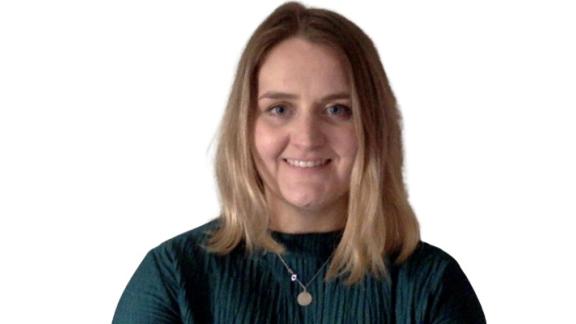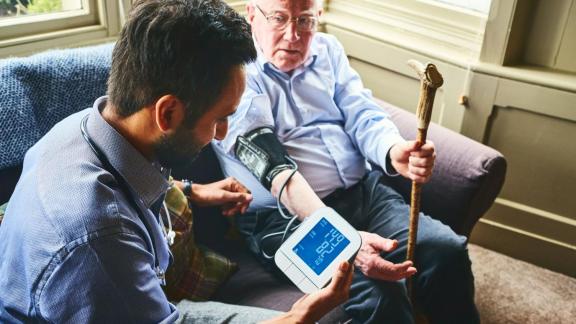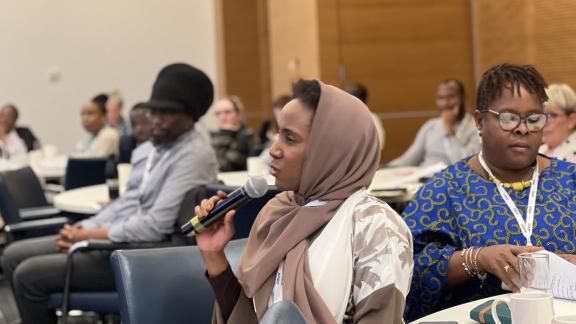Four takeaways from primary care debate at NHS Confed Conference

Last month, the NHS Confederation hosted its annual conference, which brought together nearly 6,000 registered delegates from across the healthcare sector, including clinicians. Among its many highlights were keynote addresses from the departing chief executive of NHS England, Sir Simon Stevens, the Chief Medical Officer, Professor Chris Whitty, and the now former health secretary, Matt Hancock.
Primary care topics and speakers featured throughout the three-day conference, with the PCN Network leading sessions on the future of primary care networks (PCNs), estates and the role of primary care in the health system. The newly launched Primary Care Federation Network hosted a discussion on the role of federations in the future of primary care.
So, what did we learn?
1. Patient demand is on the rise
There was consensus that patient demand has increased as primary care grapples with the vaccination programme, core activity, its own and secondary care’s backlogs, and the clinical effects of COVID-19, including long COVID and increased mental health presentations. For our panellists, the key issue was distinguishing need from demand.
2. System working is welcome, but not without risk
There is excitement about the opportunities to build relationships, work in partnership, have strategic input from primary care and focus on health inequalities
There was agreement that the move to integrated care systems (ICSs) was, broadly, the right one. Yet our speakers weren’t blind to the risks it involves. These included:
- the domination of large trusts, especially as each ICS is free to decide its own constitution
- undertaking work on ICS projects with no corresponding payment (the Elective Care Recovery Fund was cited as an existing example of this)
- the adequacy of the minimum standard for primary care representation in the ICS
- managing the interfaces between the ICS levels and how this affects which organisation is responsible for the patient
- increased bureaucracy and its impact on capacity
- how the loss of clinical commissioning groups could negatively impact primary care.
Panellists were, however, excited about the opportunities to build relationships, work in partnership, have strategic input from primary care and to focus on health inequalities that ICSs (should) present.
3. PCNs are determined to tackle health inequalities
Reflecting on two years of PCNs, PCN clinical directors and managers were proud of what they had achieved and excited about their potential. This was particularly apparent for health inequalities. Spurred on by COVID-19 and the vaccination programme, PCNs are determined to tackle health inequalities, and there is a real appetite to manage population health.
But there are barriers to achieving this, including access to data and business intelligence, as well as capacity. It was hoped that, as the health system recovers from the pandemic, PCNs can take the learnings to ensure PCNs deliver on population health management.
4. Primary care at scale has proved a success
Overall, there was agreement that services must be delivered at the most efficient level for the population served within an ICS
Panellists reflected on the success of PCNs in delivering primary care at scale: how they’ve galvanised working between GP practices and provided an expanded, specialist workforce while increasing efficiency, especially during the vaccination programme.
There were discussions about what this means for primary care in the future, particularly regarding service delivery and planning, and back-office functions at place-level (where CCGs have sat) as the NHS moves to ICSs.
Panellists stated how many of these functions are already being undertaken by GP federations and cautioned about the risks of moving to an ICS that doesn’t expressly acknowledge their place within them. Overall, there was agreement that services must be delivered at the most efficient level for the population served within an ICS.
If you enjoyed the discussions and debate at Confed conference, put 4 November in your diary, as the PCN Network and Primary Care Federation Network will be hosting a virtual conference on all things primary care. The event is free to all PCN and primary care federation staff and registration to attend is now open.
We look forward to seeing you then.
Julia Swift is the policy and delivery manager for the PCN Network.



